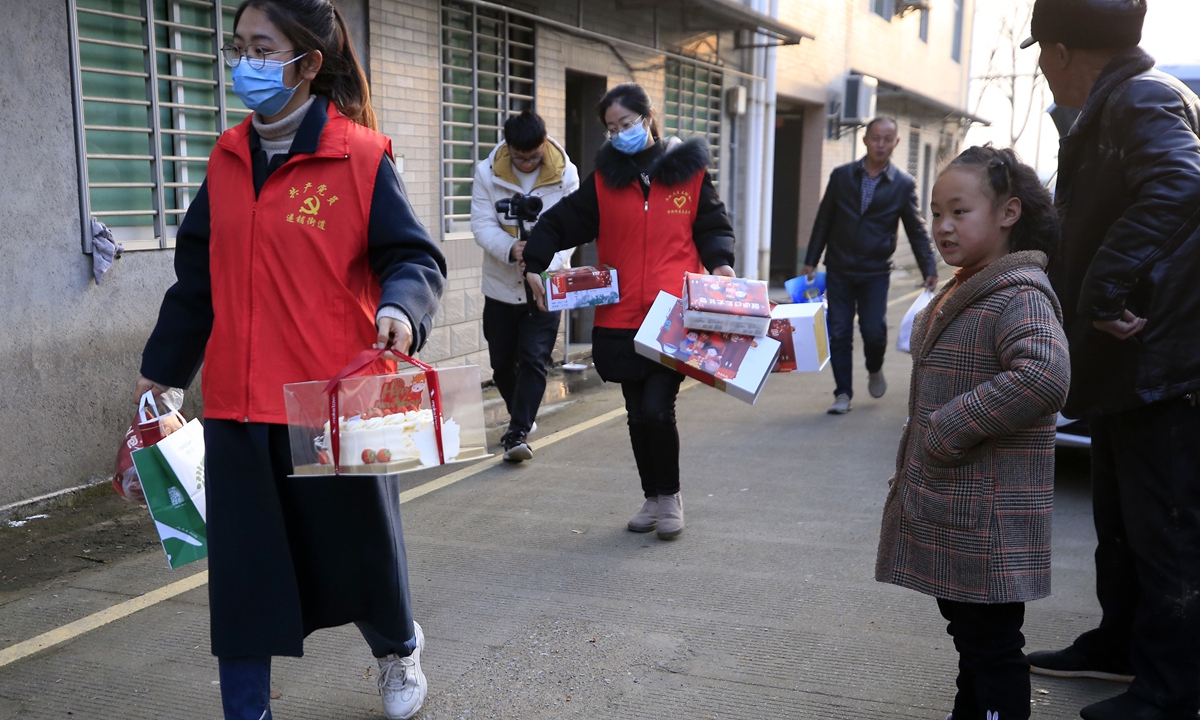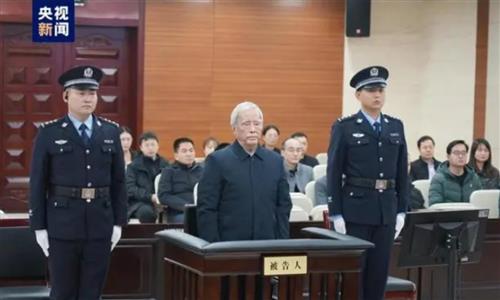
A civil servant delivers gift packages for workers who chose to stay at the city where they work during the Spring Festival holidays in Anji, East China's Zhejiang Province. Yang Hui/GT
Eight government employees from a township in South China's Guangdong Province made headlines recently for "lying flat" at work. This move, which local government claimed was aimed at motivating officials to improve their work attitudes and increase efficiency, has ignited debates online.
The eight government employees from Nanshan township, Guandong's Foshan city, were selected through a series of investigations and democratic reviews and were made public in a year-end notice titled "2023 list of 'lying flat' personnel in Nanshan township."
"We tried to encourage them to devote themselves to their career and make contributions to the town," Huang Hengjian, a member of the Party committee of Nanshan township, said in response to the public concern, local media reported.
According to Huang, these people did not violate laws or regulations. They were relatively weaker in their capability, discipline and efficiency.
The notice soon aroused heated discussion on the internet with some netizens saying they considered it inappropriate to make the names of these people who did not violate any laws, regulations or disciplines public without specific policies concerning their "lying flat" attitude.
The eight are all basic level employees such as a grid management staffer, deputy head of community and staffer at the local cultural and tourism office and they did not violate any discipline regulations, thepaper.cn reported, citing staff from the township.
Apart from Nanshan township, multiple places across the country, including Jingning She Autonomous County in East China's Zhejiang Province, Binhai county in East China's Jiangsu Province and Xigaze in Southwest China's Xizang Autonomous Region also openly looked for "lying flat" officials in 2022 and 2023.
The original intention of these local governments to spur officials to raise their efficiency is understandable, but whether to publicize their names requires further discussion, Zhuang Deshui, deputy director of the Research Center for Government Integrity-Building at Peking University, told the Global Times on Tuesday.
Zhuang proposed that these institutions adopt some disciplinary measures to regulate those who deliberately lie flat and noted there are many options to stimulate proactivity such as establishing a performance appraisal system, which is closely related to their income, promotion and appointment, he said.
According to Huang, Nanshan township took the initiative to explore the "tail-end spur" system as a way to encourage officials to boost their performance at work. Huang said the criteria to assess one's performance included work discipline, attitude, capability, efficiency, devotion to work arrangements and organizational arrangements.
Between October and December of 2023, more than 170 people, accounting for over 50 percent of the government employees, were screened for a preliminary list. The final eight were eventually decided upon by democratic evaluation aimed at finding individuals with obvious problems in the aforementioned seven criteria.
Apart from the black list of those who "lie flat," there was also an honor roll of people who were chosen for their outstanding deeds.
An employee from the Office of Work and Efficiency in Nashan told the Global Times on Tuesday that there won't be any punishment for the people on the public notice but they will receive some education to correct their work attitudes.
According to the plan, these people will be granted a six-month rectification period and their work will be reasonable arranged to help them better adjust their work pace. After rectification, Nanshan township government will also publish the names of those who are removed from the black list.


